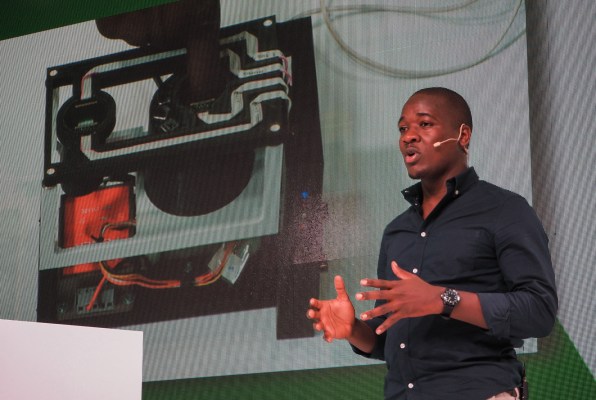Matibabu, which is competing in our Hardware Battlefield at CES today, isn’t looking to cure any diseases. Instead, the Uganda-based company is looking to make it easier to diagnose malaria so those who are infected can get the right help faster.
I actually first ran into Matibabu back in 2013 when the team competed in Microsoft’s Imagine Cup finales. Back then, the team won the UN Women Award and it has been working on perfecting its technology ever since.
The general idea behind its malaria diagnosis technology has remained the same, though. You put your finger into the portable device, which then uses light and magnetism to analyze your blood composition for the tell-tale signs of a malaria infection (which affects your red blood cells). One of the main advantages of Matibabu’s technology over a conventional blood test is that you can get results back significantly faster (2 minutes compared to 30 or more). The actual diagnosis software can run on a desktop or smartphone.
Over the last few years, Matibabu especially focused on patenting its technology and validating its results. After going through numerous prototypes, the current generation of the device is about 80 percent accurate.
[gallery ids="1435639,1435640,1435637,1435644,1435636,1433107,1433109,1433108"]
Matibabu co-founder CEO Brian Gitta told me that the team expects that it will be able to get to 90 to 95 percent accuracy over the long run. As Gitta noted, to get to this higher accuracy, the team plans to add a number of outside parameters like a patient’s temperature to its diagnosis framework, too. In addition, Matibabu is also working on improving the accuracy of its sensors.
The company has raised about $100,000 in funding, thanks in part to the attention it received after winning an award at Imagine Cup.
Gitta noted that people are used to getting their blood drawn, so the company will have to build up trust with both patients and doctors over time.
The company currently has seven employees. In addition to Gitta, these include co-founders Joshua Businge (CFO), Josiah Kavuma (CTO) and Simon Lubambo (lead engineer), as well as Matibabu’s business analyst Shafik Sekitto.
